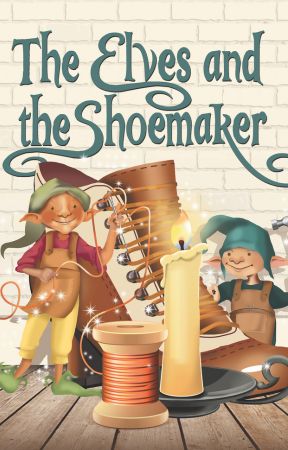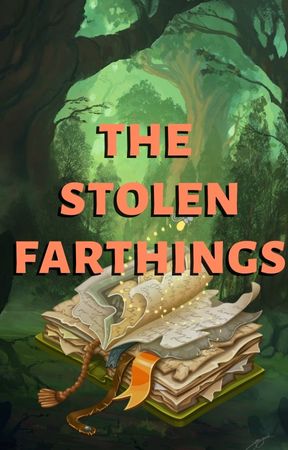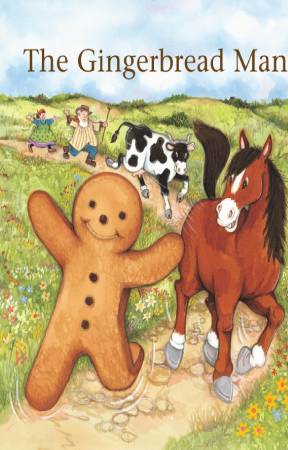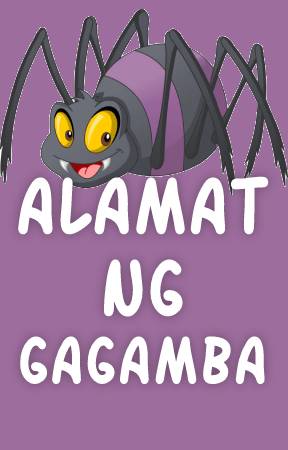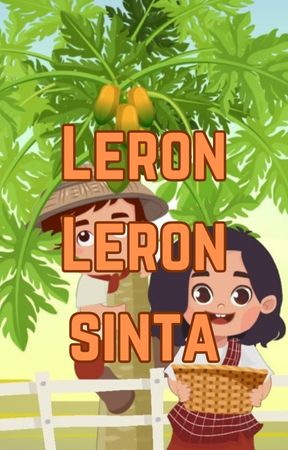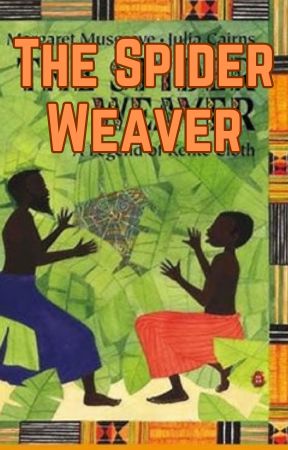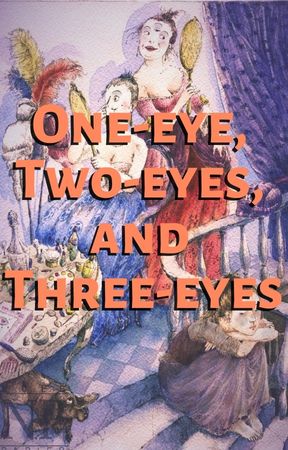There was once a woman who had three daughters, the eldest of whom was called One-eye, because she had only one eye in the middle of her forehead, and the second, Two-eyes, because she had two eyes like other folks, and the youngest, Three-eyes, because she had three eyes; and her third eye was also in the centre of her forehead.
However, as Two-eyes saw just as other human beings did, her sisters and her mother could not endure her.
They said to her, “Thou, with thy two eyes, art no better than the common people; thou dost not belong to us!” They pushed her about, and threw old clothes to her, and gave her nothing to eat but what they left, and did everything that they could to make her unhappy.
It came to pass that Two-eyes had to go out into the fields and tend the goat, but she was still quite hungry, because her sisters had given her so little to eat.
So she sat down on a ridge and began to weep, and so bitterly that two streams ran down from her eyes.
And once when she looked up in her grief, a woman was standing beside her, who said, “Why art thou weeping, little Two-eyes?” Two-Eyes answered, “Have I not reason to weep, when I have two eyes like other people, and my sisters and mother hate me for it, and push me from one corner to another, throw old clothes at me, and give me nothing to eat but the scraps they leave? To-day they have given me so little that I am still quite hungry.”
Then the wise woman said, “Wipe away thy tears, Two-eyes, and I will tell thee something to stop thee ever suffering from hunger again; just say to thy goat, “Bleat, my little goat, bleat, Cover the table with something to eat,” and then a clean well-spread little table will stand before thee, with the most delicious food upon it of which thou mayst eat as much as thou art inclined for, and when thou hast had enough, and hast no more need of the little table, just say, “Bleat, bleat, my little goat, I pray, And take the table quite away,” and then it will vanish again from thy sight.”
Hereupon the wise woman departed.
But Two-eyes thought, “I must instantly make a trial, and see if what she said is true, for I am far too hungry,” and she said, “Bleat, my little goat, bleat, Cover the table with something to eat,” and scarcely had she spoken the words than a little table, covered with a white cloth, was standing there, and on it was a plate with a knife and fork, and a silver spoon; and the most delicious food was there also, warm and smoking as if it had just come out of the kitchen.
Then Two-eyes said the shortest prayer she knew, “Lord God, be with us always, Amen,” and helped herself to some food, and enjoyed it.
And when she was satisfied, she said, as the wise woman had taught her, “Bleat, bleat, my little goat, I pray, And take the table quite away,” and immediately the little table and everything on it was gone again.
“That is a delightful way of keeping house!” thought Two-eyes, and was quite glad and happy.
In the evening, when she went home with her goat, she found a small earthenware dish with some food, which her sisters had set ready for her, but she did not touch it.
Next day she again went out with her goat, and left the few bits of broken bread which had been handed to her, lying untouched.
The first and second time that she did this, her sisters did not remark it at all, but as it happened every time, they did observe it, and said, “There is something wrong about Two-eyes, she always leaves her food untasted, and she used to eat up everything that was given her; she must have discovered other ways of getting food.”
In order that they might learn the truth, they resolved to send One-eye with Two-eyes when she went to drive her goat to the pasture, to observe what Two-eyes did when she was there, and whether any one brought her anything to eat and drink.
So when Two-eyes set out the next time, One-eye went to her and said, “I will go with you to the pasture, and see that the goat is well taken care of, and driven where there is food.”
But Two-eyes knew what was in One-eye’s mind, and drove the goat into high grass and said, “Come, One-eye, we will sit down, and I will sing something to you.”
One-eye sat down and was tired with the unaccustomed walk and the heat of the sun, and Two-eyes sang constantly, “One eye, wakest thou? One eye, sleepest thou? until One-eye shut her one eye, and fell asleep, and as soon as Two-eyes saw that One-eye was fast asleep, and could discover nothing, she said, “Bleat, my little goat, bleat, Cover the table with something to eat,” and seated herself at her table, and ate and drank until she was satisfied, and then she again cried, “Bleat, bleat, my little goat, I pray, And take the table quite away,” and in an instant all was gone.
Two-eyes now awakened One-eye, and said, “One-eye, you want to take care of the goat, and go to sleep while you are doing it, and in the meantime the goat might run all over the world.
Come, let us go home again.”
So they went home, and again Two-eyes let her little dish stand untouched, and One-eye could not tell her mother why she would not eat it, and to excuse herself said, “I fell asleep when I was out.”
Next day the mother said to Three-eyes, “This time thou shalt go and observe if Two-eyes eats anything when she is out, and if any one fetches her food and drink, for she must eat and drink in secret.”
So Three-eyes went to Two-eyes, and said, “I will go with you and see if the goat is taken proper care of, and driven where there is food.”
But Two-eyes knew what was in Three-eyes’ mind, and drove the goat into high grass and said, “We will sit down, and I will sing something to you, Three-eyes.”
Three-eyes sat down and was tired with the walk and with the heat of the sun, and Two-eyes began the same song as before, and sang, “Three eyes, are you waking?” but then, instead of singing, “Three eyes, are you sleeping?” as she ought to have done, she thoughtlessly sang, “Two eyes, are you sleeping?” and sang all the time, “Three eyes, are you waking? Two eyes, are you sleeping?” Then two of the eyes which Three-eyes had, shut and fell asleep, but the third, as it had not been named in the song, did not sleep.
It is true that Three-eyes shut it, but only in her cunning, to pretend it was asleep too, but it blinked, and could see everything very well.
And when Two-eyes thought that Three-eyes was fast asleep, she used her little charm, “Bleat, my little goat, bleat, Cover the table with something to eat,” and ate and drank as much as her heart desired, and then ordered the table to go away again, “Bleat, bleat, my little goat, I pray, And take the table quite away,” and Three-eyes had seen everything.
Then Two-eyes came to her, waked her and said, “Have you been asleep, Three-eyes? You are a good care-taker! Come, we will go home.”
And when they got home, Two-eyes again did not eat, and Three-eyes said to the mother, “Now, I know why that high-minded thing there does not eat.
When she is out, she says to the goat, “Bleat, my little goat, bleat, Cover the table with something to eat,” and then a little table appears before her covered with the best of food, much better than any we have here, and when she has eaten all she wants, she says, “Bleat, bleat, my little goat, I pray, And take the table quite away,” and all disappears.
I watched everything closely.
She put two of my eyes to sleep by using a certain form of words, but luckily the one in my forehead kept awake.”
Then the envious mother cried, “Dost thou want to fare better than we do? The desire shall pass away,” and she fetched a butcher’s knife, and thrust it into the heart of the goat, which fell down dead.
When Two-eyes saw that, she went out full of trouble, seated herself on the ridge of grass at the edge of the field, and wept bitter tears.
Suddenly the wise woman once more stood by her side, and said, “Two-eyes, why art thou weeping?” “Have I not reason to weep?” she answered.
“The goat which covered the table for me every day when I spoke your charm, has been killed by my mother, and now I shall again have to bear hunger and want.”
The wise woman said, “Two-eyes, I will give thee a piece of good advice; ask thy sisters to give thee the entrails of the slaughtered goat, and bury them in the ground in front of the house, and thy fortune will be made.”
Then she vanished, and Two-eyes went home and said to her sisters, “Dear sisters, do give me some part of my goat; I don’t wish for what is good, but give me the entrails.”
Then they laughed and said, “If that’s all you want, you can have it.”
So Two-eyes took the entrails and buried them quietly in the evening, in front of the house-door, as the wise woman had counselled her to do.
Next morning, when they all awoke, and went to the house-door, there stood a strangely magnificent tree with leaves of silver, and fruit of gold hanging among them, so that in all the wide world there was nothing more beautiful or precious.
They did not know how the tree could have come there during the night, but Two-eyes saw that it had grown up out of the entrails of the goat, for it was standing on the exact spot where she had buried them.
Then the mother said to One-eye, “Climb up, my child, and gather some of the fruit of the tree for us.”
One-eye climbed up, but when she was about to get hold of one of the golden apples, the branch escaped from her hands, and that happened each time, so that she could not pluck a single apple, let her do what she might.
Then said the mother, “Three-eyes, do you climb up; you with your three eyes can look about you better than One-eye.”
One-eye slipped down, and Three-eyes climbed up.
Three-eyes was not more skilful, and might search as she liked, but the golden apples always escaped her.
At length the mother grew impatient, and climbed up herself, but could get hold of the fruit no better than One-eye and Three-eyes, for she always clutched empty air.
Then said Two-eyes, “I will just go up, perhaps I may succeed better.”
The sisters cried, “You indeed, with your two eyes, what can you do?” But Two-eyes climbed up, and the golden apples did get out of her way, but came into her hand of their own accord, so that she could pluck them one after the other, and brought a whole apronful down with her.
The mother took them away from her, and instead of treating poor Two-eyes any better for this, she and One-eye and Three-eyes were only envious, because Two-eyes alone had been able to get the fruit, and they treated her still more cruelly.
It so befell that once when they were all standing together by the tree, a young knight came up.
“Quick, Two-eyes,” cried the two sisters, “creep under this, and don’t disgrace us!” and with all speed they turned an empty barrel which was standing close by the tree over poor Two-eyes, and they pushed the golden apples which she had been gathering, under it too.
When the knight came nearer he was a handsome lord, who stopped and admired the magnificent gold and silver tree, and said to the two sisters, “To whom does this fine tree belong? Any one who would bestow one branch of it on me might in return for it ask whatsoever he desired.”
Then One-eye and Three-eyes replied that the tree belonged to them, and that they would give him a branch.
They both took great trouble, but they were not able to do it, for the branches and fruit both moved away from them every time.
Then said the knight, “It is very strange that the tree should belong to you, and that you should still not be able to break a piece off.”
They again asserted that the tree was their property.
Whilst they were saying so, Two-eyes rolled out a couple of golden apples from under the barrel to the feet of the knight, for she was vexed with One-eye and Three-eyes, for not speaking the truth.
When the knight saw the apples he was astonished, and asked where they came from.
One-eye and Three-eyes answered that they had another sister, who was not allowed to show herself, for she had only two eyes like any common person.
The knight, however, desired to see her, and cried, “Two-eyes, come forth.”
Then Two-eyes, quite comforted, came from beneath the barrel, and the knight was surprised at her great beauty, and said, “Thou, Two-eyes, canst certainly break off a branch from the tree for me.”
“Yes,” replied Two-eyes, “that I certainly shall be able to do, for the tree belongs to me.”
And she climbed up, and with the greatest ease broke off a branch with beautiful silver leaves and golden fruit, and gave it to the knight.
Then said the knight, “Two-eyes, what shall I give thee for it?” “Alas!” answered Two-eyes, “I suffer from hunger and thirst, grief and want, from early morning till late night; if you would take me with you, and deliver me from these things, I should be happy.”
So the knight lifted Two-eyes on to his horse, and took her home with him to his father’s castle, and there he gave her beautiful clothes, and meat and drink to her heart’s content, and as he loved her so much he married her, and the wedding was solemnized with great rejoicing.
When Two-eyes was thus carried away by the handsome knight, her two sisters grudged her good fortune in downright earnest.
The wonderful tree, however, still remains with us,” thought they, “and even if we can gather no fruit from it, still every one will stand still and look at it, and come to us and admire it.
Who knows what good things may be in store for us?” But next morning, the tree had vanished, and all their hopes were at an end.
And when Two-eyes looked out of the window of her own little room, to her great delight it was standing in front of it, and so it had followed her.
Two-eyes lived a long time in happiness.
Once two poor women came to her in her castle, and begged for alms.
She looked in their faces, and recognized her sisters, One-eye, and Three-eyes, who had fallen into such poverty that they had to wander about and beg their bread from door to door.
Two-eyes, however, made them welcome, and was kind to them, and took care of them, so that they both with all their hearts repented the evil that they had done their sister in their youth.
